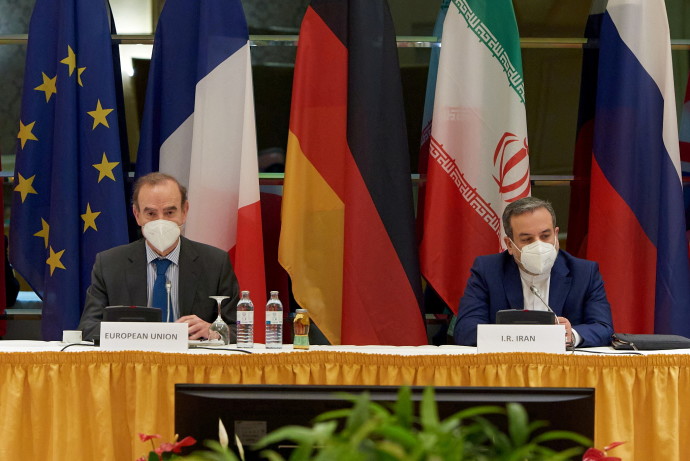WASHINGTON – National Security Advisor Jake Sullivan released a statement on Monday, condemning the continued crackdown on protesters in Iran.
“We are deeply concerned about reports from Iran of mass arrests, sham trials, and now a death sentence for protesters voicing legitimate demands against a government that systematically denies basic dignity and freedom to its people,” he said.
“We are deeply concerned about reports from Iran of mass arrests, sham trials, and now a death sentence for protesters voicing legitimate demands against a government that systematically denies basic dignity and freedom to its people.”
National Security Advisor Jake Sullivan
“The eyes of the world are on Iran,” Sullivan said. “The United States stands staunchly with the Iranian people and their demands.”
Sullivan’s statement, together with recent rounds of US sanctions on Iranian officials, signal the administration’s shifting focus – from trying to revive the 2015 nuclear agreement to the regime’s brutal crackdown on protesters.
Special Envoy Rob Malley said last month that reviving the JCPOA with the Islamic Republic “is not even on the agenda.” In an interview with CNN, he argued that while “diplomacy is the way” to stop the regime from acquiring a nuclear weapon, the administration was focused on efforts to “defend and support the fundamental rights of Iranian citizens.”

However, now that the midterm elections are over, and as Democrats secured a majority in the US Senate, some experts in Washington believe that the two countries might now try to jump-start the negotiation to revive the 2015 nuclear deal.
“This is exactly the moment when the regime in Iran can secure a deal with the Biden administration and get access to what we estimate is $1 trillion dollars in sanctions relief,” according to Mark Dubowitz, Chief Executive at the Foundation for Defense of Democracies (FDD).
“It is true that the political circumstances are not ideal,” he said. “Iran’s Supreme Leader Ali Khamenei is murdering Iranian women and girls and helping Russian leader Vladimir Putin murder Ukrainian girls. But the administration desperately wants a deal and will trot out its well-worn and fundamentally flawed arguments that the JCPOA will put the nuclear program back in a box and prevent this brutal regime from developing nuclear weapons.
“That won’t be enough to persuade most Republicans and even some Democrats, but it will be enough to secure more than one-third support in Congress and prevent Congress from blocking the deal under the Iran Nuclear Agreement Review Act,” Dubowitz said. “The decision is Khamenei’s and his alone.”
Speculations on Iran negotiations miss the big picture
On the other hand, Daniel Shapiro, Distinguished Fellow at the Atlantic Council and former US ambassador to Israel, said that “all the speculation about whether Iran wants to resume negotiations, or how the midterm results affect the chances of a deal, misses the big picture.”
“The regime’s own actions – brutally repressing Iranians protesting for their freedom and supplying drones to Russia to murder Ukrainian civilians – have made a renewed nuclear deal virtually untenable,” he said. “It doesn’t matter much what Iran says about the deal in this environment.”
Ambassador Dennis Ross, Distinguished Fellow at The Washington Institute for Near East Policy, said that “the issue is the Iranians.
“The supreme leader won’t be interested in doing a deal so long as the upheaval is continuing,” Ross said. “He will fear looking weak, and needing the agreement. He wants the world to see Iranian strength not weakness – he fears that an image of weakness will threaten the regime internally and externally.
“If the upheaval subsides and after a decent interval, he will have an interest in a deal because he will see the need to try to buy off the public economically – he won’t provide reforms because that would threaten the Islamic Republic,” Ross explained.
“Therefore, sanctions relief will become attractive. In the interim, the Iranians will keep pressing ahead with their nuclear program, making Iran even more of a threshold nuclear weapons state. A strategy for [dealing with] that is crucial.”
